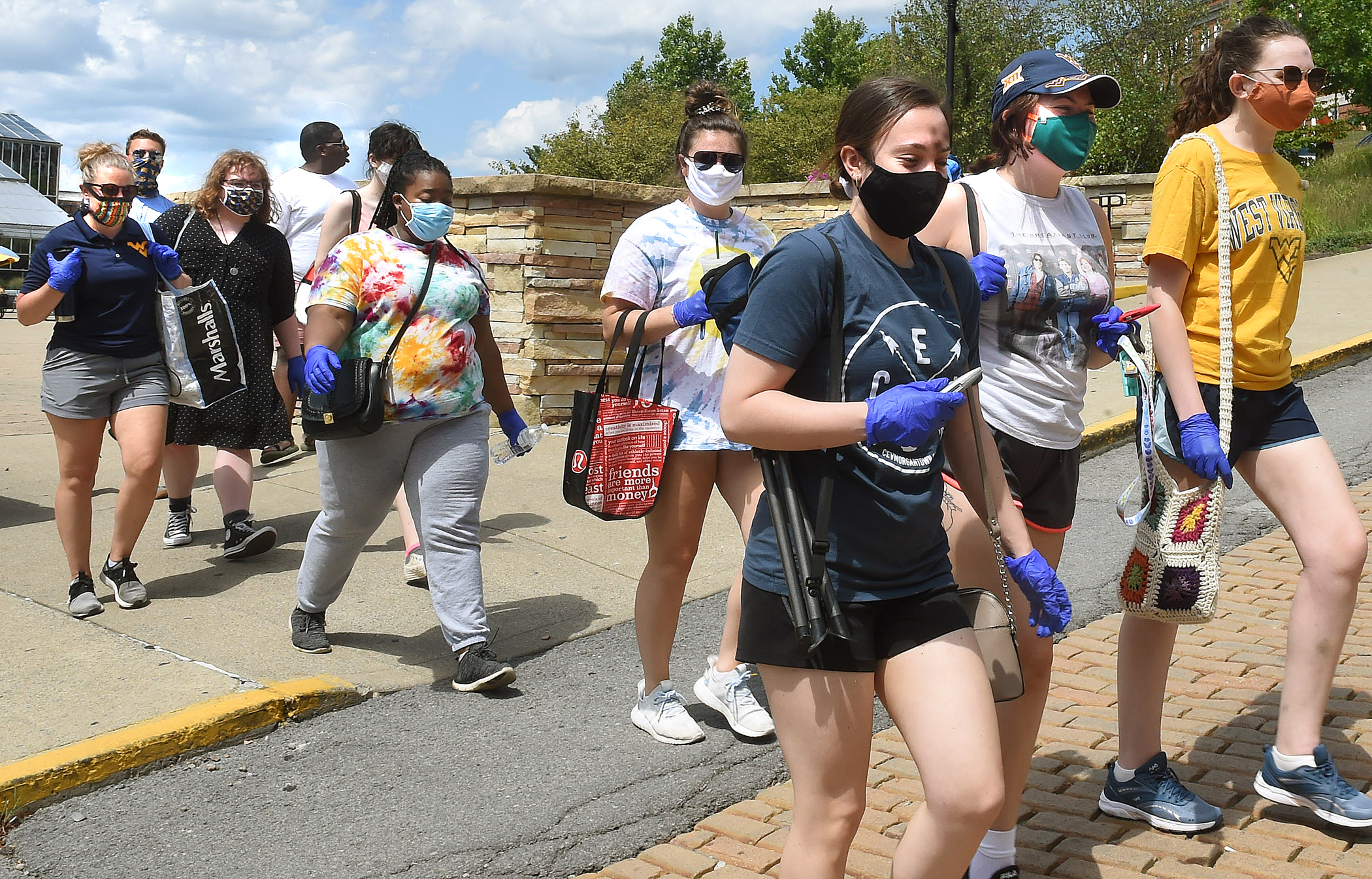WVU Today
As West Virginia University kicks off a new academic year amid a recent spike in COVID-19 cases across the country, public health researchers at both WVU and the Centers for Disease Control and Prevention now have a better understanding of university students’ knowledge and perceptions of mask-wearing.
Earlier this year, the WVU School of Public Health, in collaboration with the CDC, invited all WVU students to participate in a project to help inform policy decisions and practices related to prevention of COVID-19.
Students could participate in an anonymous survey that asked about their experiences with mask-wearing during the pandemic; their knowledge of and attitudes toward correct mask use; and how and when they wear a mask. The study’s principal investigator, Keith Zullig, professor and chair of the Department of Social and Behavioral Sciences, said 621 responses were received.
“We know wearing masks is a widely practiced and proven mitigation strategy for COVID-19 for both vaccinated and unvaccinated individuals,” Zullig said. “However, these survey results help us better understand how often, in what context and the extent to which our survey participants wear masks so future messaging and communications to students are better informed.”
From the responses, Zullig and colleagues learned that nearly 70% of survey participants agreed or strongly agreed that wearing any type of mask is better than not wearing a mask at all when it comes to COVID-19.
Other key highlights pertaining to mask usage include:
- About 20% slightly agreed or agreed that when they chose to not wear a mask, it’s because they are ineffective and provide few health benefits.
- About 22% agreed or strongly agreed that mandatory mask wearing violates civil liberties.
- About 27% disagreed or strongly disagreed that wearing a mask can protect me from others.
- About 44% disagreed or strongly disagreed that if I’m vaccinated, I should not have to wear a mask.
- For those who indicated they might not get the COVID-19 vaccine:
- 67% worried about side effects.
- 61% think the vaccine was rushed.
- 24% didn’t think it would protect them.
- 59% didn’t believe they were at high risk of severe disease.
“These data will be useful when it comes to policy decisions and best practices but, in the meantime, serve as a collective reminder that we should do our part to keep one another safe,” Zullig said. “And right now, that includes getting vaccinated, practicing good hygiene and wearing your mask indoors regardless of vaccination status, per the CDC’s recent guidelines, and both indoors and outdoors if you’re unvaccinated.”
In addition, Zullig said survey findings can be used to further bolster continual, targeted messages reinforcing the benefits of both face mask use and vaccinations to reduce the transmission of COVID-19.
“Such messaging should remain a priority in order to preserve public health and ensure the safest possible learning environment for our faculty, staff and students,” he added.
WVU was one of 13 institutions to participate in the project, which involved over 10,000 total survey participants.
For the latest on WVU’s COVID-19 guidelines and campus vaccination clinics, visit Return to Campus and watch the most recent Return to Campus Conversation.
TWEET @DominionPostWV




